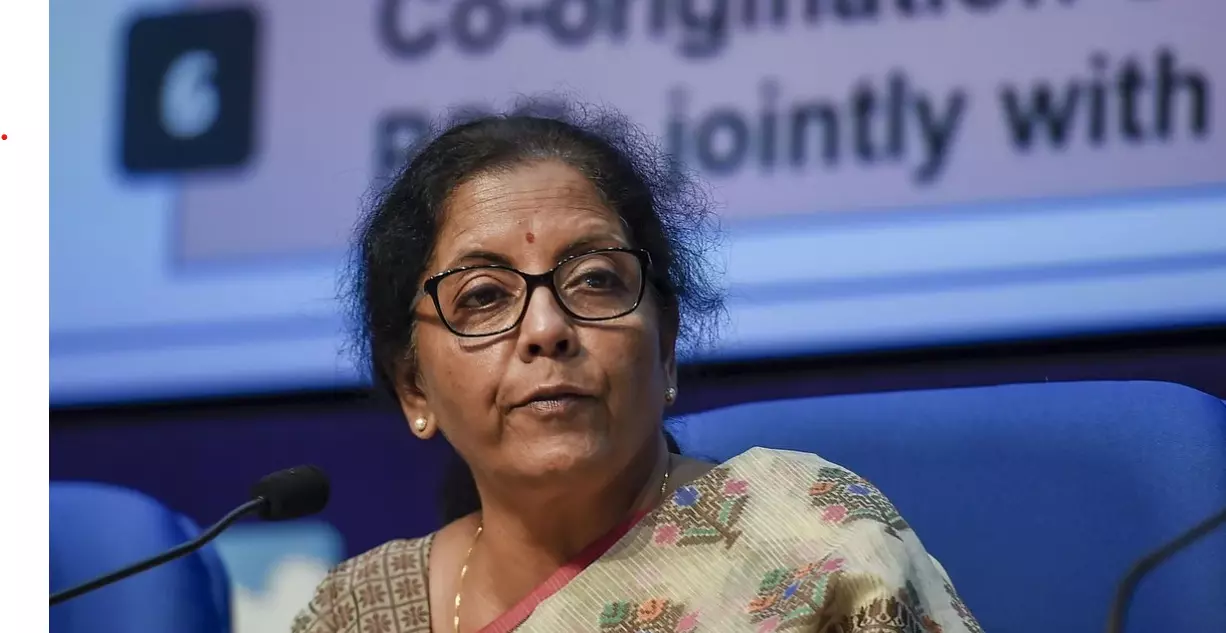Of ‘bridging’ relevance

Ahead of the much-awaited General Elections, Union Finance Minister Nirmala Sitharaman will present the interim Budget for FY 2024-25. Unlike her previous five full budgets, this interim budget will require a slightly different set of finesse. The minister has stated in clear terms that “the February 1, 2024, Budget will just be a vote-on-account because we will be in an election mode. So, the Budget that the government presents will just be to meet the expenditure of the government till a new government is sworn in.” Although there is no legal binding upon the government to refrain from big-ticket announcements during an interim Budget, the in-general convention has been to stick to the disciplinary line. However, since the full Budget will come only by July, the government is expected to take significant decisions on a range of key metrics. As per the initial GDP estimate announced by the statistics ministry on January 5, India's nominal GDP growth, which does not account for inflation, is projected to decline to 8.9 per cent in the fiscal year 2023-24. This marks the lowest rate since the pandemic-affected year of 2020-21 and is below the 10.5 per cent predicted by the finance ministry in its budget projections for the current year. The sharp decline in terms of nominal GDP growth poses a significant challenge on the fiscal consolidation front. At present, the fiscal deficit target of 5.9 per cent of the GDP for FY 2023-24 appears challenging. It may also be noted that the disinvestment scenario is not very encouraging, further complicating the prospects of fiscal consolidation. A robust nominal growth would be the mainstay of the government’s efforts in this direction. Putting the present scenario alongside the government’s steadfast commitment to reducing the fiscal deficit to 4.5 per cent of GDP by 2025-26, one gets an impression that the government might target a fiscal deficit of around 5 per cent of GDP for the next year. On the taxation front, although there is much to be done in terms of reforming existing systems, the government is expected to abstain from initiating any measures that would border on populism. The crucial issues like the reduction in corporate tax, concessional regimes, etc., should be better left for consideration during the announcement of the full Budget for FY 2024-25. The government must respect the timeline it has been accorded for the implementation of the interim Budget. However, clarity can be introduced in contentious and ambiguous domains like buyback taxation. The government should take steps to resolve uncertainties related to the taxation of buybacks. There is a need to offer clear and transparent regulations or guidelines that outline the tax implications and other relevant aspects for non-domestic investors participating in the country's financial markets. Clear and predictable rules can enhance investor confidence and attract foreign capital. The Indian taxation system is plagued with a range of infirmities that await urgent addressal. In addition to these routine budgetary components, numerous industry-specific demands have also come to the fore. One such industry holding paramount importance is the energy sector, particularly green energy. While on one hand, the oil and gas industry is consistently pressing the government to bring petroleum products under the ambit of GST, on the other, it is expected that the government will allocate some funds for energy transition and incentivise natural gas consumption. Given the urgency that climate change has acquired in the present day and age, leaving little scope for complacency, it is expected that the government would incentivise green businesses. Furthermore, keeping in view the fast-emerging tech sector and subsequent threats in various sectors, the government, through the monetary provisions, can aim to create a disciplinary outline. To sum up, although the upcoming Budget is of interim nature, there are plenty of issues holding substantial urgency. While populist provisions should be strictly avoided, the government should waste no time in intervening on urgent and strategic matters.



